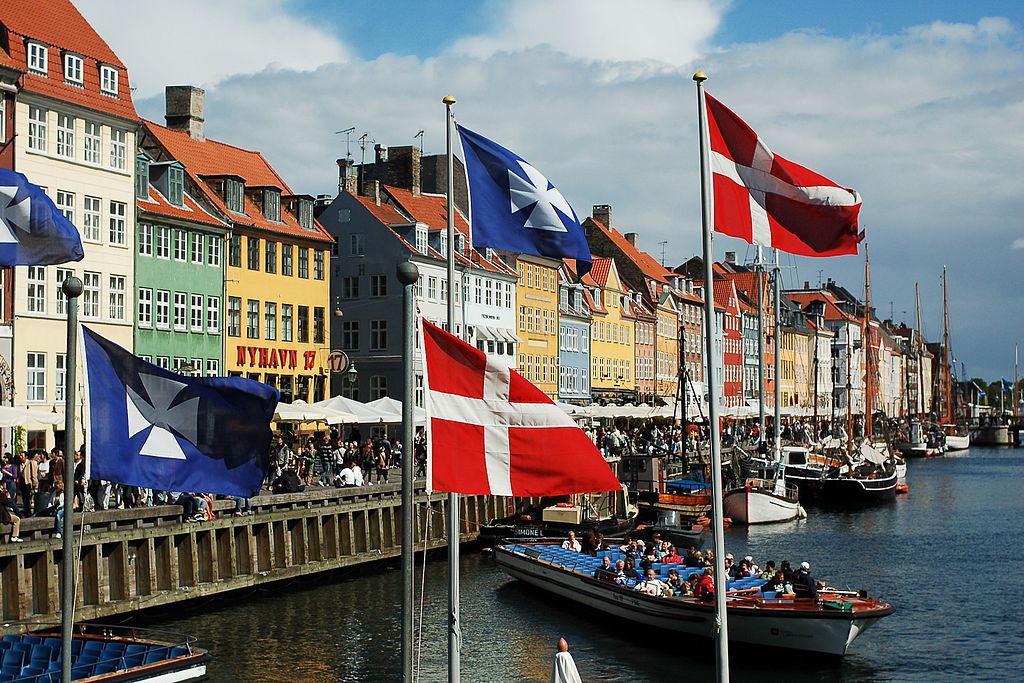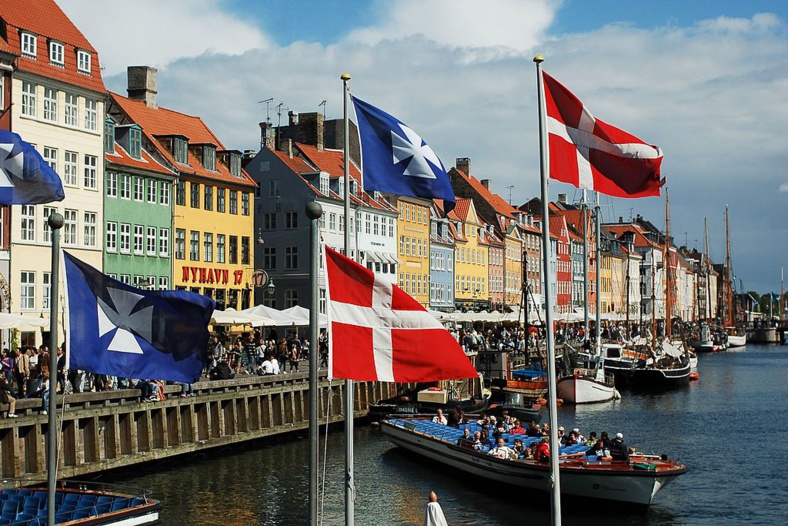Almost one third of the population in Denmark uses cellphone app MobilePay to do their monetary transactions. Today, businesses such as clothing retailers, restaurants and petrol pumps are legally free to refuse cash payments from customers. Services like hospitals, post offices, etc. aren’t yet subjected to the same law however the Danish government has ‘set a 2030 deadline to completely do away with paper money’.
The news has been widely spread not only in the Nordics, but across the world and there is a reason: Denmark could just be one of the first countries to go cashless, before the rest of the world follows.
But behind the idea of a ‘cashless paradise’, there is much more than just a technological change. Yet, cash isn’t the only mean of payment any longer and some of its competitors seem to be easier to manipulate. The first idea that comes to our minds when we hear about a cash-free country is probably the safety and the conveniency of not carrying cash money. It appears however than the Danes haven’t really made the decision of going cash-free. The country made it for them, and one of the major reasons for it was the lobby of the banking sector.
We may still have in mind the good old far west stereotypes where banks mostly served to deposit cash into ‘good hands’ and for the safety of our savings. But today banks do not rely on cash any longer, in fact, it’s quite the opposite; they hate cash.
More and more banks’ branches across Denmark started to be cashless years ago. Yes, that sounds unbelievable, a cashless bank, but in Denmark, it is a reality. You go to the bank for the service and not to withdraw or deposit. If you need to do so, you may still go to the ATM down the street. Does that make you feel safer about your money? Maybe not… but the bank, at least, feels much safer not carrying cash. For them, it’s a jackpot, they take away all the risks and therefore the expenses related to handling cash. It’s much less work and less manpower as it requires more computers than personnel to take care of your money. And if you go to them, it’s for the service… and where there is a service, there is a fee. So, at the end, they win.
This vision might seem a little simplified or simplistic. Unfortunately, it isn’t. For the bankers, a cashless country is a dream: increased profits with less expenses. And Denmark is here to show to the rest of the world why this model should be implemented everywhere else.
The bankers have seen the change coming from afar and now they have been rejoined by other parties interested in less cash based payments: the digital payment actors and the online giants such as Facebook or Apple who are today launching their own online wallets and soon… their own banks. In the mid 90s Denmark used to have 80 per cent of its retail purchases made in cash. Today we are down to about 25 per cent and the 2030 deadline seems reachable. Within the same past 25 years or so, Denmark has also seen an amplified regain of power of the banking sector. The country is playing with fire when it comes to interest rates and the banks have more and more control over the citizens’ lifestyle.
The same banks have also encouraged the political power in place to accelerate the transition towards a cashless nation, proving once again how powerful the banking sector has become in Denmark.
Today in Denmark, despite a few citizen-groups fighting for cash to remain usable in their country, it seems like the transition has already been embraced. As a matter of fact, Denmark’s guinea pig role seems to have had quite a regional impact as many other nordic countries are willing to follow.
‘More profits for the bank and less freedom for the customers shouldn’t be a very successful moto across Europe or anywhere in the world, but if the resistance doesn’t organize soon, it could very well become a reality before most of us have the time, and the will to say good bye to our cash money. Combining the financial and economic interests of a nation with its citizens’ wants and needs should be a priority for our governments. Today Denmark seem to have chosen the banks’ side despite of a growing uncertainty among its people. Let’s see if the rest of the world follows the cashless guinea-pig or if the bankers’ utopia turns out to be a fiasco.
The news has been widely spread not only in the Nordics, but across the world and there is a reason: Denmark could just be one of the first countries to go cashless, before the rest of the world follows.
But behind the idea of a ‘cashless paradise’, there is much more than just a technological change. Yet, cash isn’t the only mean of payment any longer and some of its competitors seem to be easier to manipulate. The first idea that comes to our minds when we hear about a cash-free country is probably the safety and the conveniency of not carrying cash money. It appears however than the Danes haven’t really made the decision of going cash-free. The country made it for them, and one of the major reasons for it was the lobby of the banking sector.
We may still have in mind the good old far west stereotypes where banks mostly served to deposit cash into ‘good hands’ and for the safety of our savings. But today banks do not rely on cash any longer, in fact, it’s quite the opposite; they hate cash.
More and more banks’ branches across Denmark started to be cashless years ago. Yes, that sounds unbelievable, a cashless bank, but in Denmark, it is a reality. You go to the bank for the service and not to withdraw or deposit. If you need to do so, you may still go to the ATM down the street. Does that make you feel safer about your money? Maybe not… but the bank, at least, feels much safer not carrying cash. For them, it’s a jackpot, they take away all the risks and therefore the expenses related to handling cash. It’s much less work and less manpower as it requires more computers than personnel to take care of your money. And if you go to them, it’s for the service… and where there is a service, there is a fee. So, at the end, they win.
This vision might seem a little simplified or simplistic. Unfortunately, it isn’t. For the bankers, a cashless country is a dream: increased profits with less expenses. And Denmark is here to show to the rest of the world why this model should be implemented everywhere else.
The bankers have seen the change coming from afar and now they have been rejoined by other parties interested in less cash based payments: the digital payment actors and the online giants such as Facebook or Apple who are today launching their own online wallets and soon… their own banks. In the mid 90s Denmark used to have 80 per cent of its retail purchases made in cash. Today we are down to about 25 per cent and the 2030 deadline seems reachable. Within the same past 25 years or so, Denmark has also seen an amplified regain of power of the banking sector. The country is playing with fire when it comes to interest rates and the banks have more and more control over the citizens’ lifestyle.
The same banks have also encouraged the political power in place to accelerate the transition towards a cashless nation, proving once again how powerful the banking sector has become in Denmark.
Today in Denmark, despite a few citizen-groups fighting for cash to remain usable in their country, it seems like the transition has already been embraced. As a matter of fact, Denmark’s guinea pig role seems to have had quite a regional impact as many other nordic countries are willing to follow.
‘More profits for the bank and less freedom for the customers shouldn’t be a very successful moto across Europe or anywhere in the world, but if the resistance doesn’t organize soon, it could very well become a reality before most of us have the time, and the will to say good bye to our cash money. Combining the financial and economic interests of a nation with its citizens’ wants and needs should be a priority for our governments. Today Denmark seem to have chosen the banks’ side despite of a growing uncertainty among its people. Let’s see if the rest of the world follows the cashless guinea-pig or if the bankers’ utopia turns out to be a fiasco.















